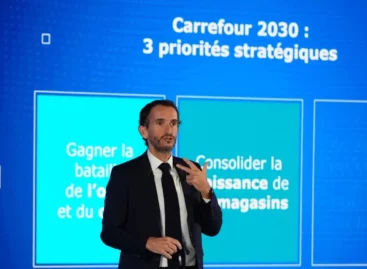Intelligent robots: working for us, with us, instead of us
The exponential growth of the robot economy and technological development represent new opportunities, but also challenges for companies. So-called intelligent robots equipped with artificial intelligence can provide solutions to many global problems, such as labor shortages, an aging society, the instability of supply chains, and managing the effects of climate change. However, in order for a company to integrate and use AI-based robots in the most efficient and safest way, a radical rethinking of current work organization models is necessary.
 The spread of artificial intelligence and the development of robot technology have opened up new horizons in the applicability and functionality of robots. In addition to pre-programmed electromechanical machines, intelligent robots have appeared, complex, programmable mechatronic systems equipped with artificial intelligence, which are able to perceive their environment with varying degrees of autonomy and manipulate objects in it.
The spread of artificial intelligence and the development of robot technology have opened up new horizons in the applicability and functionality of robots. In addition to pre-programmed electromechanical machines, intelligent robots have appeared, complex, programmable mechatronic systems equipped with artificial intelligence, which are able to perceive their environment with varying degrees of autonomy and manipulate objects in it.
In the era of Industry 5.0, robots with increasing autonomy are revolutionizing manufacturing and service processes through their collaborative capabilities, while facilitating the emergence of a safer, smarter, more human-centric economy.
“An essential element of human-centric robot development is to ensure risk management measures and the necessary ethical frameworks beyond the functionality, social capabilities and appearance of the robot,”
– said Alexandra Prisznyák, Deloitte’s Leading AI and Robotics Expert.
In recent years, the global robot market has been growing explosively, especially in areas such as hospitality, warehousing and logistics, and healthcare, where intelligent robots provide more efficient operation, cost reduction and innovative customer experience. However, in Hungary, these advanced solutions are only available to a limited extent, so it may become strategically important for domestic companies to start exploiting this technology now, to start exploiting the opportunities offered by intelligent robots now.
Related news
Carrefour Unveils 2030 Strategy, To Focus On France, Spain And Brazil
🎧 Hallgasd a cikket: Lejátszás Szünet Folytatás Leállítás Nyelv: Auto…
Read more >PwC Global CEO Survey: CEO confidence at a five-year low
🎧 Hallgasd a cikket: Lejátszás Szünet Folytatás Leállítás Nyelv: Auto…
Read more >Related news
40 secure jobs, sustainable solutions – new BURGER KING® in Csepel
🎧 Hallgasd a cikket: Lejátszás Szünet Folytatás Leállítás Nyelv: Auto…
Read more >









